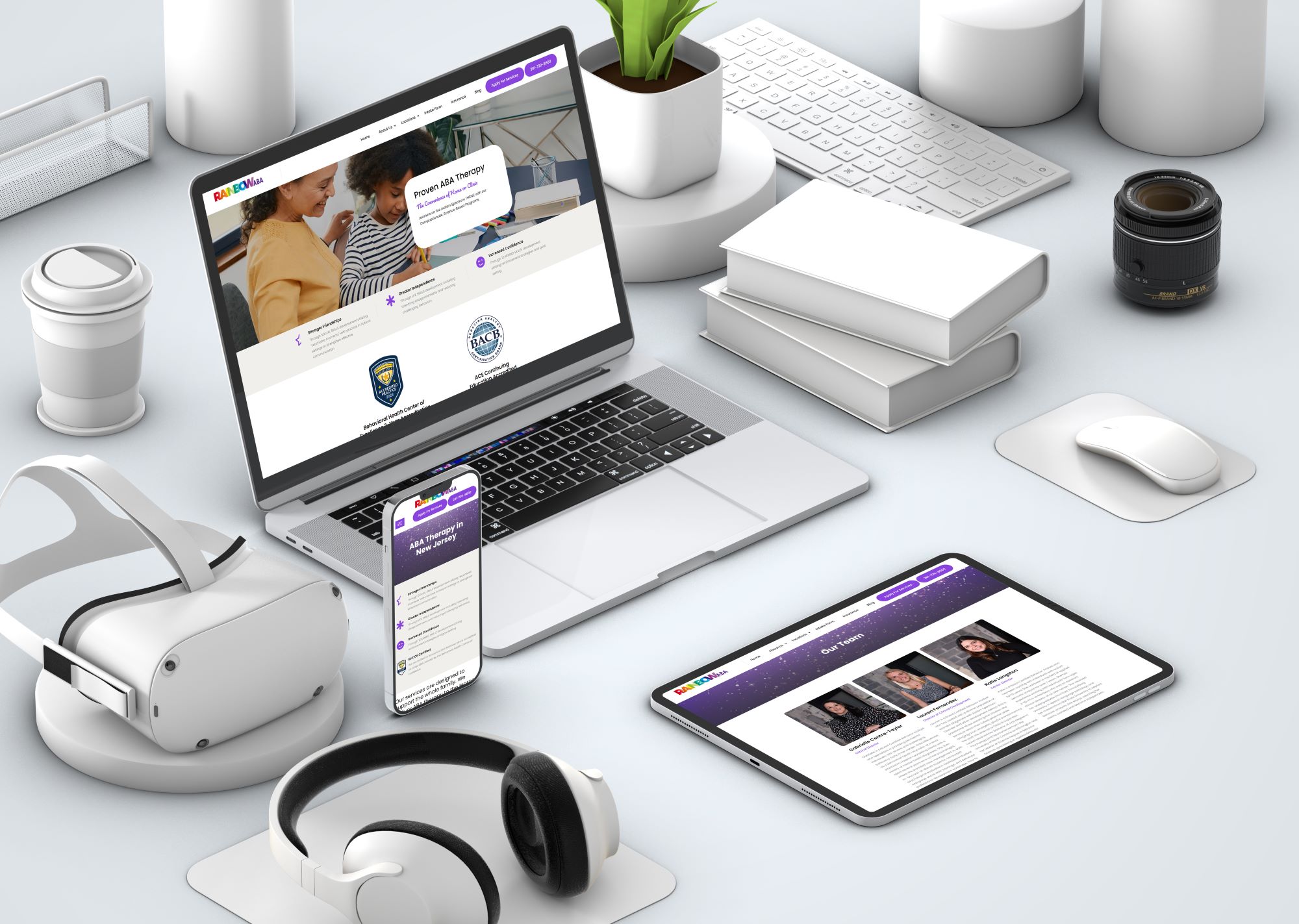Your Guide to Comprehensive Website Personalization To Drive Lead Generation
Get a Complimentary
Digital Marketing Audit
Get Your Digital Marketing Presence Audited
SEO Audit
on-page SEO, competition analysis, backlinks, and domain authority
Website Performance
conversion rates, traffic levels, and landing pages
Recommendations
optimize your digital presence to generate more leads
What is a Website Development Agency?
In today’s digital age, providing a personalized user experience on your website is no longer optional—it’s essential. Website personalization involves tailoring the content, design, and functionality of your site to meet the unique needs and preferences of each visitor. At Bertoli Marketing, we specialize in comprehensive website personalization services designed to create a more engaging, relevant, and effective online experience. In this extensive guide, we will explore the various aspects of website personalization and how our expert team can help you leverage it to achieve your business goals.


What is Website Personalization?
The Importance of Website Personalization
Enhanced User Experience
Personalized websites provide users with content and recommendations that are relevant to their interests and needs, resulting in a more satisfying and enjoyable experience.
Increased Engagement
By presenting personalized content, websites can keep users engaged longer, reducing bounce rates and increasing the likelihood of conversions.
Higher Conversion Rates
Personalized experiences can lead to higher conversion rates as users are more likely to respond positively to content and offers that resonate with their personal preferences.
Customer Loyalty
Personalization can foster a stronger connection between the user and the brand, encouraging repeat visits and long-term loyalty.
Improved Data Insights
Personalization relies on data insights to understand user behavior and preferences, providing valuable information that can be used to further refine marketing strategies.
Key Components of Website Personalization
1. Data Collection and Analysis
The foundation of effective website personalization is data. This involves collecting and analyzing various types of data to understand user behavior and preferences. Key data sources include:
- Behavioral Data: Tracking user interactions on the site, such as pages visited, time spent on each page, and actions taken (e.g., clicks, downloads).
- Demographic Data: Collecting information about users’ age, gender, location, and other demographic factors.
- Transactional Data: Analyzing past purchases and transactions to understand buying patterns and preferences.
- Contextual Data: Considering the context in which users are visiting the site, such as the time of day, device used, and referral source.


2. User Segmentation
Once the data is collected, it is crucial to segment users into different groups based on shared characteristics or behaviors. This segmentation allows for more targeted and effective personalization. Common segmentation criteria include:
- Geographic Location: Tailoring content and offers based on the user’s geographic location.
- Behavioral Patterns: Grouping users based on their browsing behavior, such as frequent visitors, first-time visitors, or cart abandoners.
- Purchase History: Segmenting users based on their past purchase history, such as frequent buyers, one-time buyers, or high-value customers.
- Demographic Factors: Creating segments based on demographic factors like age, gender, or income level.
3. Personalized Content and Recommendations
Personalized content is at the heart of website personalization. This involves presenting content that is tailored to the interests and preferences of each user. Key strategies include:
- Dynamic Content: Using dynamic content that changes based on user behavior and preferences. For example, displaying different homepage banners for different user segments.
- Product Recommendations: Leveraging recommendation algorithms to suggest products that are likely to be of interest to the user based on their browsing history and purchase patterns.
- Customized Offers: Creating personalized offers and promotions that resonate with specific user segments, such as discounts on products they have shown interest in.
- Content Personalization: Tailoring blog posts, articles, and other content to match the user’s interests and preferences.


4. Personalization Technologies
Implementing website personalization requires the use of advanced technologies and tools. Key technologies include:
- Customer Data Platforms (CDPs): CDPs collect and unify data from various sources to create comprehensive user profiles that can be used for personalization.
- Personalization Engines: These are software tools that use algorithms and machine learning to deliver personalized content and recommendations in real-time.
- Marketing Automation Platforms: These platforms automate personalized marketing efforts, such as email campaigns, based on user behavior and preferences.
- Content Management Systems (CMS): Modern CMS platforms offer personalization features that allow for dynamic content delivery based on user data.
5. Testing and Optimization
Personalization is an iterative process that requires continuous testing and optimization. Key practices include:
- A/B Testing: Running A/B tests to compare the performance of different personalized content and offers to determine what resonates best with users.
- User Feedback: Gathering feedback from users to understand their preferences and improve personalization efforts.
- Performance Monitoring: Continuously monitoring the performance of personalized content and making adjustments as needed to improve effectiveness.

Case Studies: Success Stories of Website Personalization
Case Study 1: Retailer Boosts Sales with Personalized Recommendations
Challenge: A retail client was facing low engagement and sales on their e-commerce site.
Solution: We implemented a personalization strategy that included personalized product recommendations based on browsing history and past purchases. We also created customized offers for different user segments.
Results: The personalized recommendations led to a 25% increase in average order value, and the customized offers resulted in a 20% increase in conversion rates. Overall, the client saw a 30% boost in sales.
Case Study 2: B2B Company Enhances Lead Generation with Customized Content
Challenge: A B2B client was struggling with low lead generation and engagement on their website.
Solution: We developed a content personalization strategy that included tailored blog posts, articles, and case studies based on user interests and industry. We also implemented personalized calls-to-action (CTAs) to guide users through the conversion funnel.
Results: The personalized content led to a 40% increase in user engagement, and the customized CTAs resulted in a 35% boost in lead generation. The client saw a significant improvement in their overall marketing effectiveness.
Case Study 3: Financial Services Firm Builds Trust with Personalized User Experience
Challenge: A financial services firm needed to build trust with their audience and improve user experience.
Solution: We implemented a personalization strategy that included customized content and offers based on user behavior and preferences. We also enhanced the site’s security and accessibility features.
Results: The personalized user experience led to a 50% increase in returning visitors, and the enhanced security features built greater trust with users. The client saw a 30% increase in user satisfaction and loyalty.
The Website Personalization Process at Bertoli Marketing







Best Practices for Effective Website Personalization
To ensure the success of your website personalization efforts, here are some best practices to follow:
- Start with Clear Goals: Define clear goals for your personalization efforts, such as increasing engagement, boosting conversions, or improving user satisfaction.
- Use Data Effectively: Collect and analyze data from various sources to understand user behavior and preferences. Use this data to inform your personalization strategy.
- Segment Your Audience: Create detailed user segments based on shared characteristics and behaviors. This allows for more targeted and effective personalization.
- Create Dynamic Content: Use dynamic content that changes based on user data to provide a personalized experience. This includes personalized product recommendations, customized offers, and tailored content.
- Test and Optimize Continuously: Conduct regular A/B tests to determine what works best for your audience. Gather user feedback and continuously monitor performance to make data-driven adjustments.
- Prioritize User Privacy and Security: Ensure that your personalization efforts comply with data privacy regulations and prioritize user security. Be transparent about how you collect, store, and use data, and provide users with options to control their privacy settings.

0. Integrate Across Channels
1. Monitor Performance Metrics


2. Stay Agile and Adaptive
CMS Development
Custom CMS Design
We create custom themes and templates that align with your brand identity and enhance the user experience.
Plugin and Module Integration
We integrate essential plugins and modules to extend the functionality of your CMS and meet your specific needs.
Training and Support
We provide training and support to help you manage your CMS effectively. Our team is always available to assist with updates, troubleshooting, and maintenance.
The Development Process at Bertoli Marketing
Discovery and Planning


Design and Prototyping
Development and Testing
Once the design is approved, our development team begins building the website. This includes coding, integrating features, and implementing security measures. We conduct rigorous testing throughout the development process to ensure that the website functions flawlessly across all devices and browsers. Our thorough testing process ensures that every aspect of the website meets the highest standards of quality and performance.
Launch and Optimization After extensive testing and refinement, we launch your website to the world. But our commitment doesn’t end there. We continuously monitor its performance, gather user feedback, and implement optimizations to further enhance its effectiveness. Whether it’s improving site speed, refining user experience, or fine-tuning SEO strategies, we’re dedicated to helping your website achieve its full potential.

Future Trends in Website Personalization
Artificial Intelligence (AI) and Machine Learning
AI-powered algorithms will continue to drive more sophisticated and accurate personalization efforts. Machine learning models will analyze vast amounts of data in real-time to deliver hyper-personalized experiences.
Voice and Visual Search Integration
With the rise of voice assistants and visual search technologies, websites will need to optimize their content and user experience to cater to these new search methods. Personalization will extend to voice-based interactions and visual search results.
Predictive Analytics
Leveraging predictive analytics will enable websites to anticipate user needs and preferences before they even express them. Predictive models will help personalize content and offer proactively based on historical data and behavioral patterns.
Privacy-First Personalization
As data privacy regulations become stricter, businesses will need to prioritize privacy-first approaches to personalization. This includes anonymizing data, obtaining explicit consent for data usage, and implementing robust security measures.
Real-Time Personalization
Real-time data processing capabilities will enable websites to deliver personalized experiences instantaneously as users navigate through the site. This will enhance relevance and engagement by adapting content in real-time.

